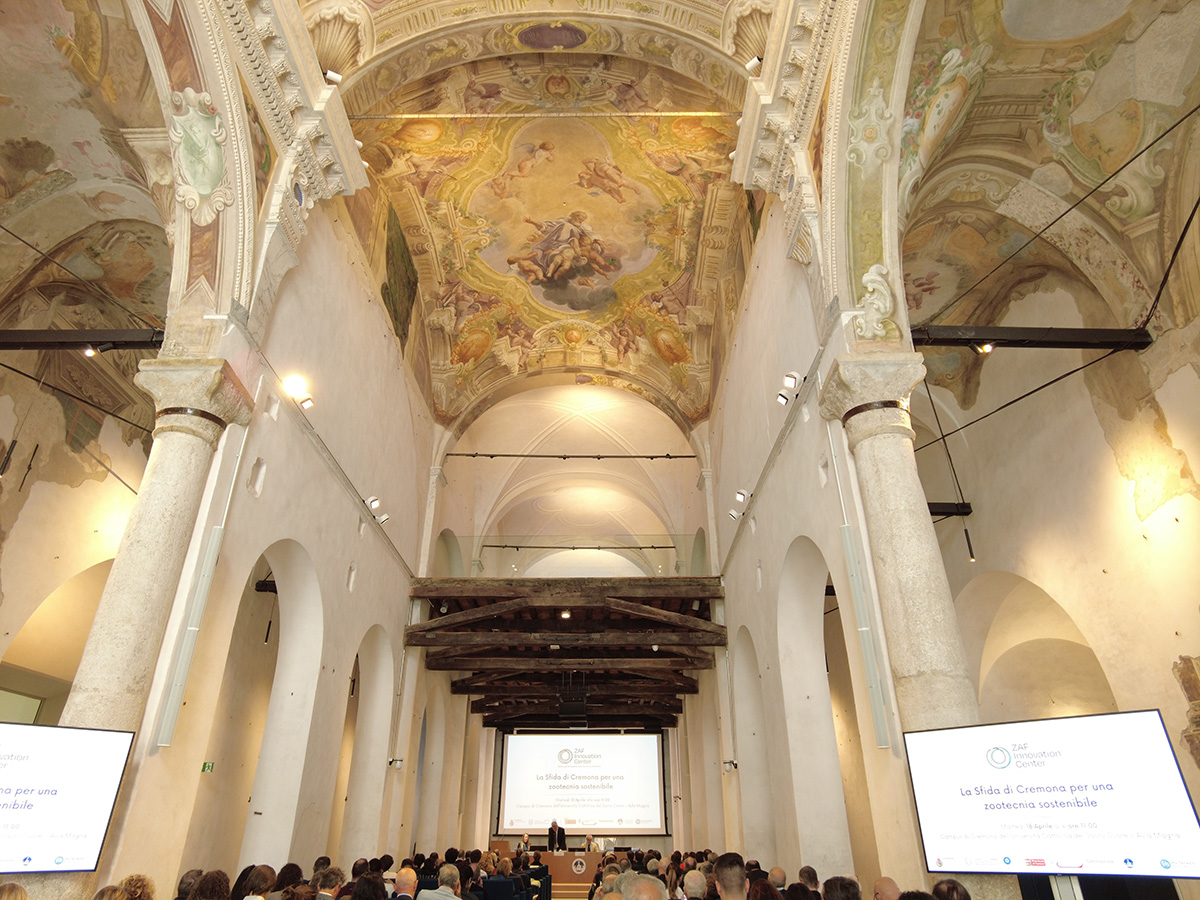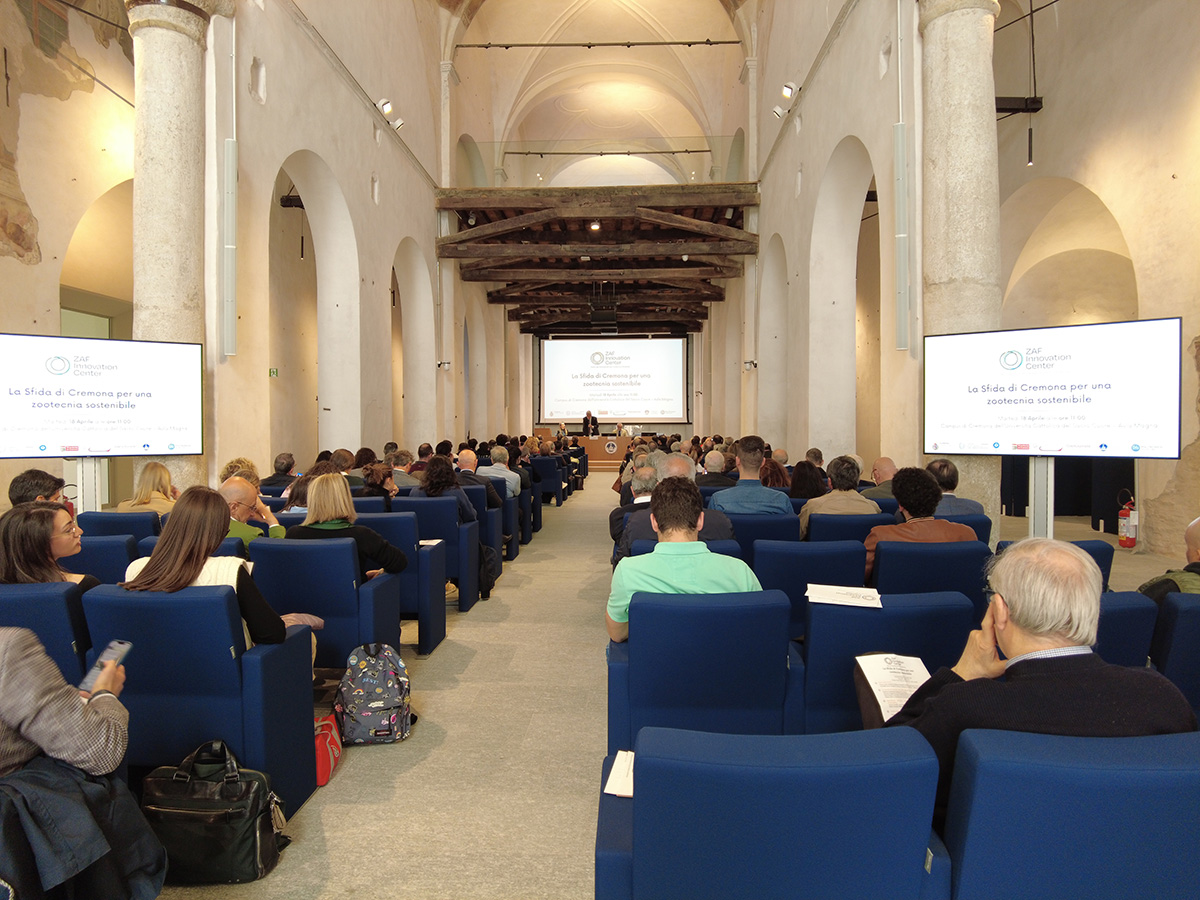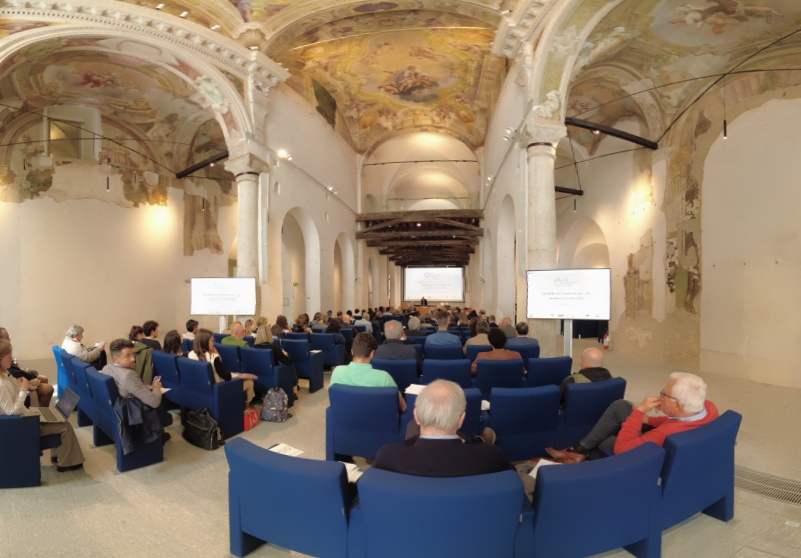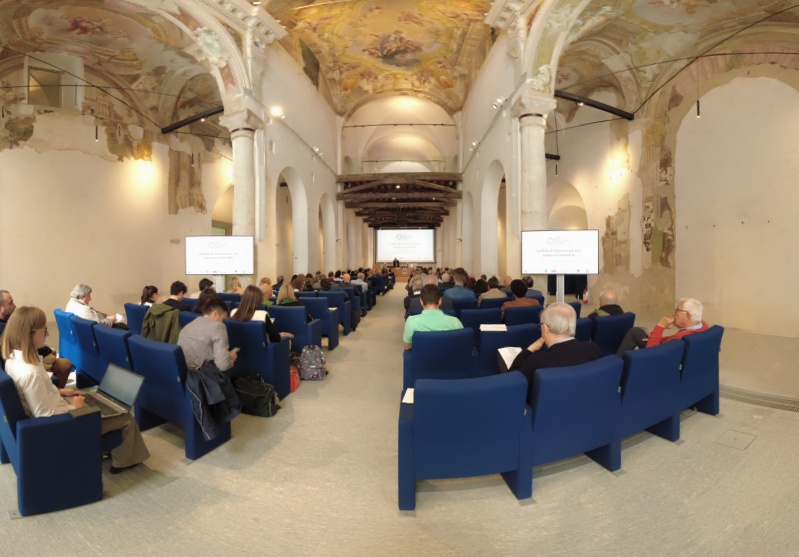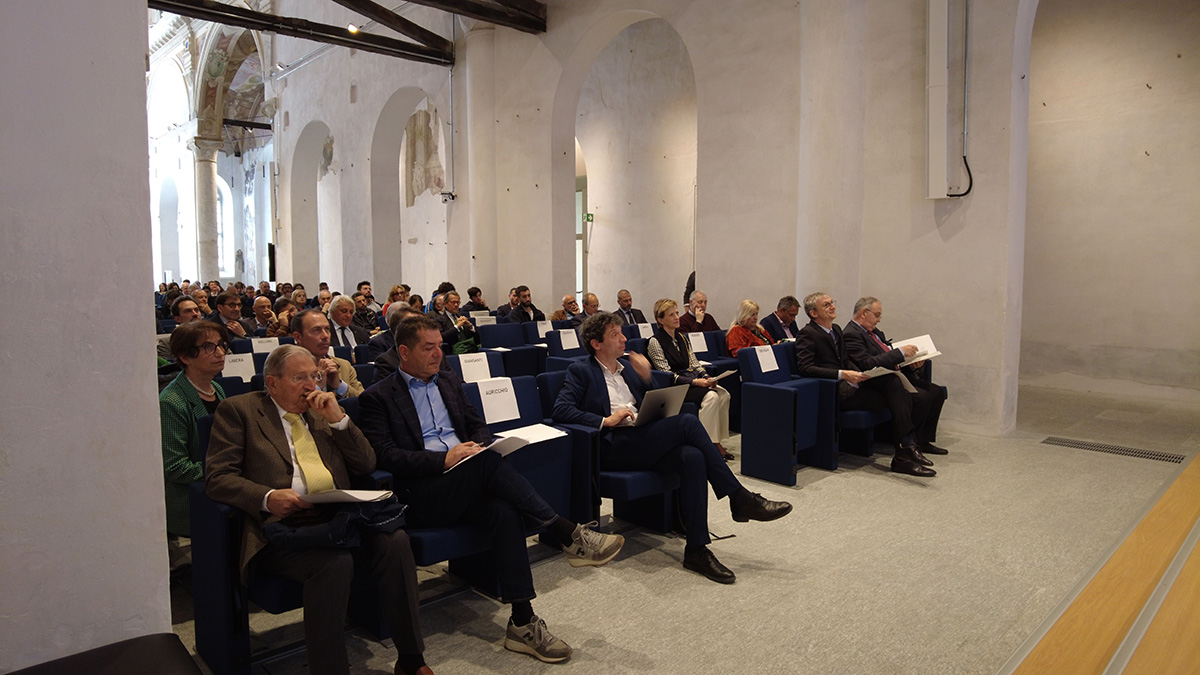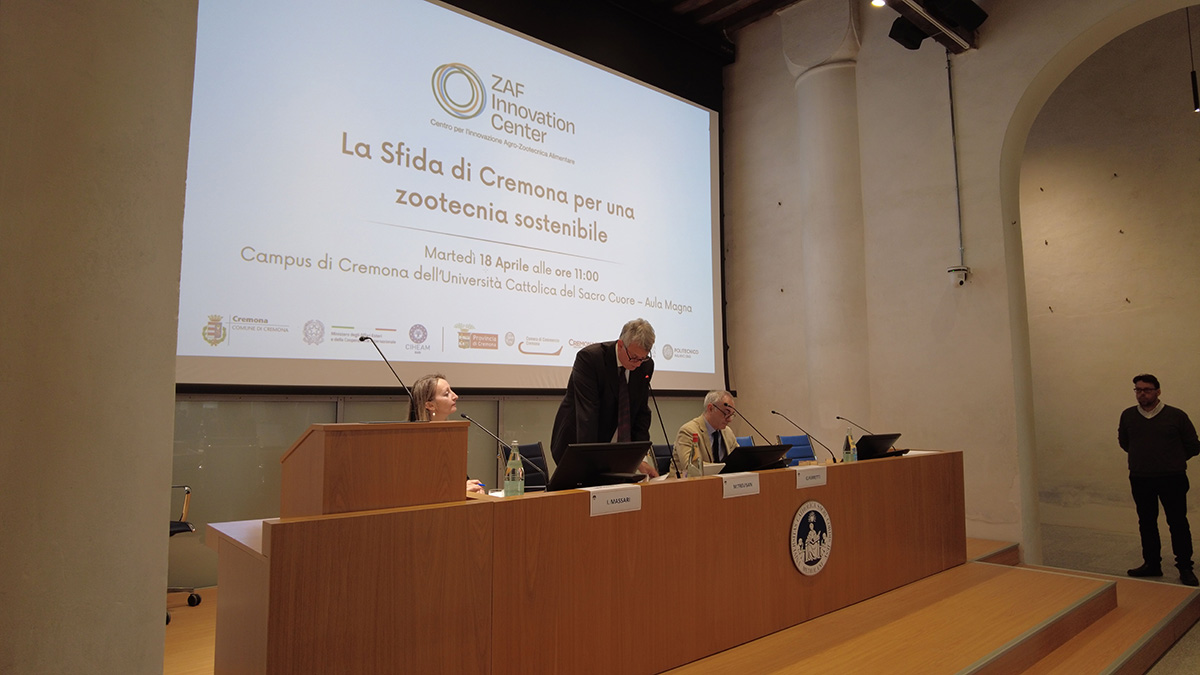An audience of over 140 representatives of companies, trade associations, students and institutions attended the conference “Cremona’s challenge for sustainable animal husbandry” this morning in the Aula Magna of the Santa Monica Campus.
Marco Trevisan, Dean of the Faculty of Agricultural, Food and Environmental Sciences of the Catholic University of the Sacred Heart, delegated by Rector Anelli, did the “honours”, who opened the event by emphasizing how it is incorrect to think that animal husbandry is responsible for climate change, however, research and studies are needed to definitely improve performance.
Then Gianni Ferretti, Pro-Rector of the Territorial Pole of the Milan Polytechnic, delegated by Rector Sciuto, highlighted that the mission of the Polytechnic is to accompany and support the territorial vocations of the province through technological development: food and music.
Each university, with its own skills, contributes to an indispensable alliance, which is the one created in the ZAF Innovation Center, the Center for agro-zootechnical food innovation of Cremona which we recall sees the adhesion of six trade associations of the territory (Free Association of Cremona Farmers, Coldiretti Cremona, Confartigianato Cremona companies, Confcooperative, Apindustria Confimi Cremona, Confcommercio Cremona) as well as 14 important companies in the area. The center is supported by the management of REI which for the purpose was the beneficiary of a loan from the LGH Foundation (A2A Group).
Zootechnical, Agricultural, Food: these are the issues that ZAF Innovation Center intends to deal with and which are placed at the center of the primary system, as underlined by Mayor Gianluca Galimberti.
“The primary sector has a strategic role and must also become so for political decision-makers, because they are the efficient models of animal husbandry and agriculture which then feed the planet. ZAF is placed in the awareness that the transition is not only ecological, but also a transformation of production systems and is a cultural transition, a new way to face problems.”
The vice-president of the Province of Cremona Giovanni Gagliardi, Roberto Biloni, president of CremonaFiere and the Secretary General of the Chamber of Commerce of Cremona Maria Grazia Cappelli followed one another with the institutional greetings, who reminded us that the province of Cremona produces the 11% national milk, reaching above the national average.
The microphone then returned to the universities, where Professor Lorenzo Morelli (Catholic University of the Sacred Heart) and Professor Gianni Ferretti spoke about how to accelerate innovative capacity in our area thanks to science and the alliance of the two universities to respond to those which are the challenges facing the world’s food system: population rising to 9.7 billion by 2050 with a corresponding increase in demand, climate change that is degrading crops, water supplies 40% lower by 2030 and global food waste producing the same amount of CO2 as US and EU emissions combined.
Lorenzo Morelli, who in addition to being a professor of microbiology is also the coordinator for sustainable animal husbandry of the Food Table of the Ministry of Foreign Affairs and International Cooperation (MAECI) opened the tour of the round table, moderated by Ilaria Massari, Director of REI – Reindustria Innovation as well as Project Manager of ZAF Innovation Center.
The main objective of the round table was to collect contributions from authoritative subjects on why Cremona and the ZAF Innovation Center are the right place for livestock innovation.
Massimiliano Giansanti, President of Confagricoltura, Maurizio Martina Deputy Director General of FAO, Stefano Gatti, Special Envoy for Food Security of the Minister of Foreign Affairs and International Cooperation, Biagio Di Terlizzi Deputy Director and Head of the planning and cooperation of the CIHEAM of Bari.
Some proposals for collaborations and ideas emerged today within the round table.
In particular, FAO has suggested to ZAF, with the aim of reducing emissions in the world of animal husbandry, to focus the work on 3 main areas: feed quality, breed selection and waste management.
Further “homework” has been entrusted by the Ministry of Foreign Affairs and International Cooperation: collecting scientific data on animal husbandry to dispel false myths, structuring projects on food safety issues that they can finance, identifying innovations already active and bringing them into developing countries.
Finally, the CIHEAM of Bari also proposes collaborations to the ZAF, such as the involvement of the “Italian system” for the development of food safety, the


